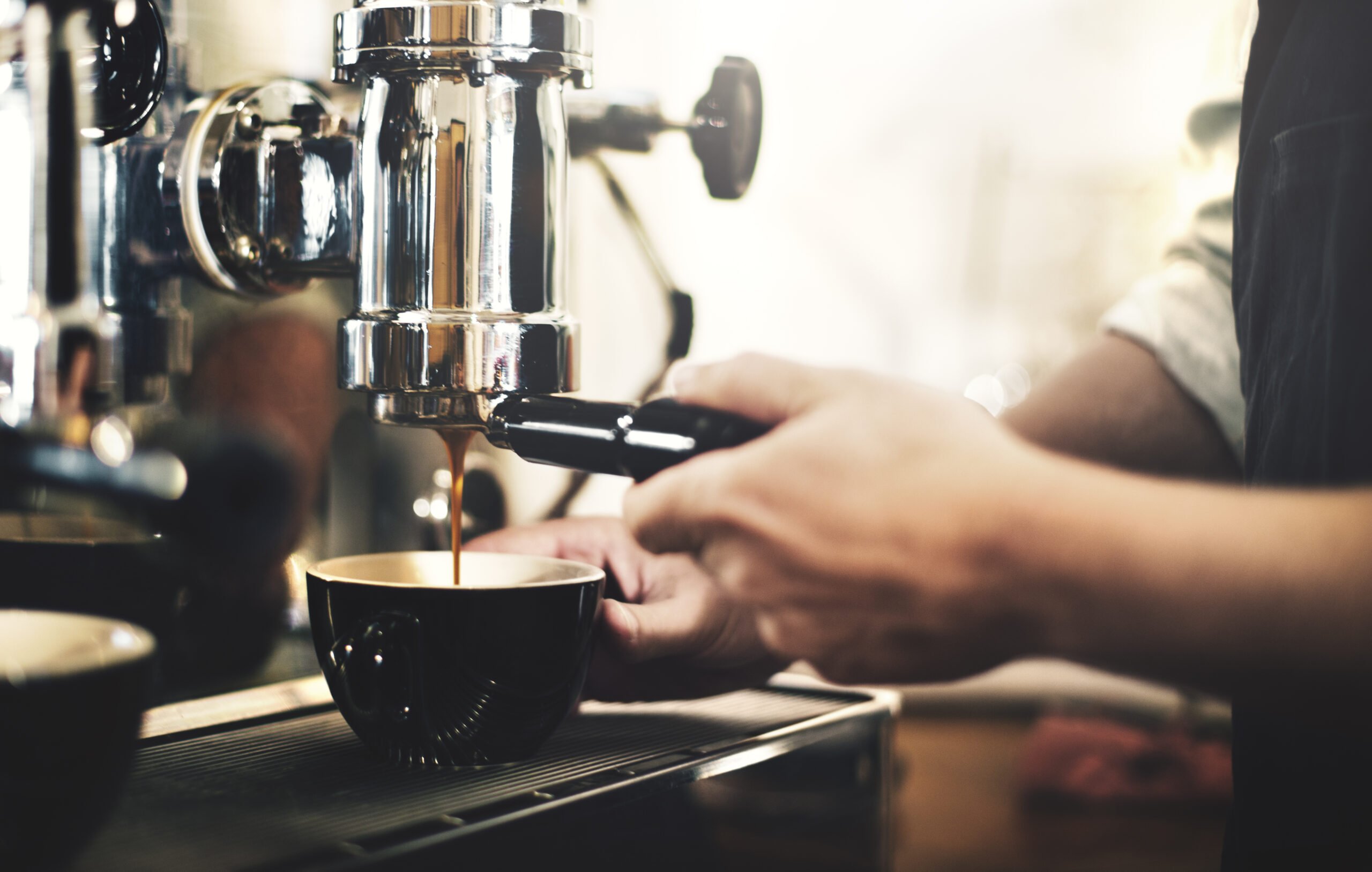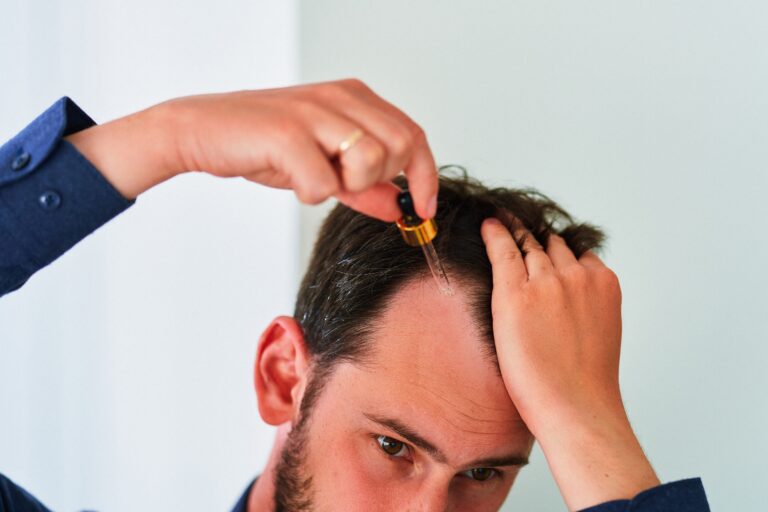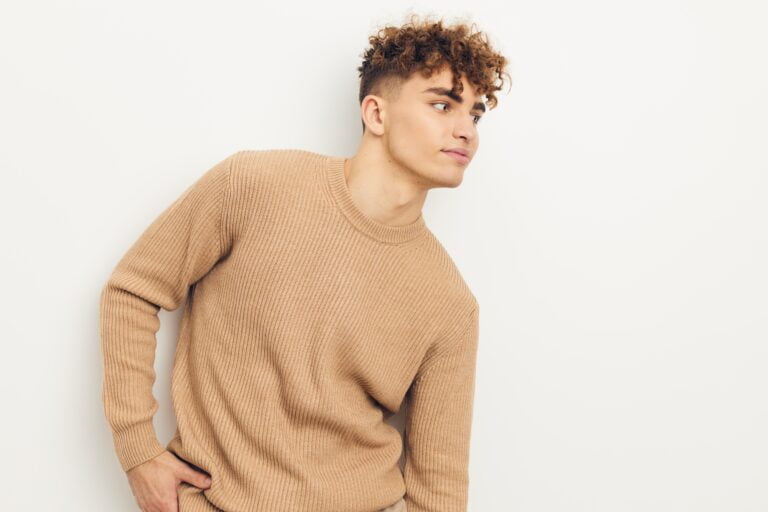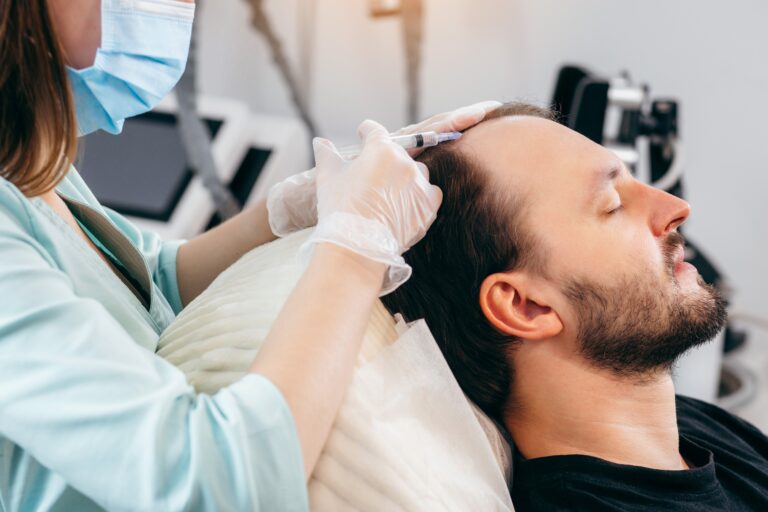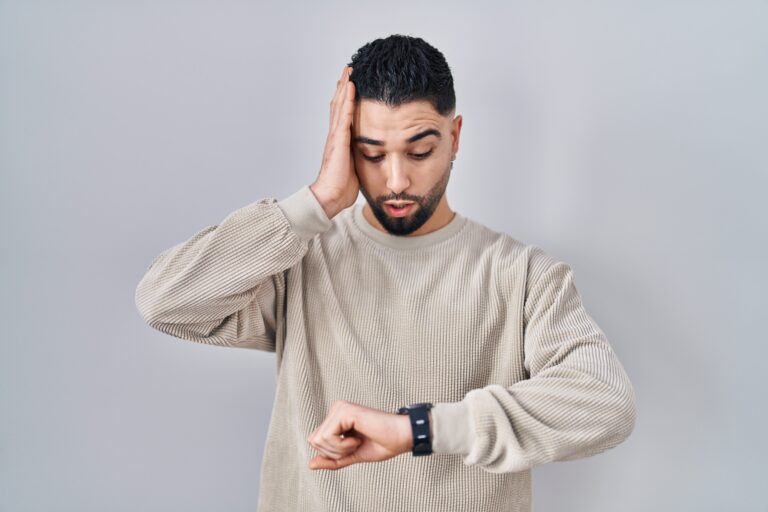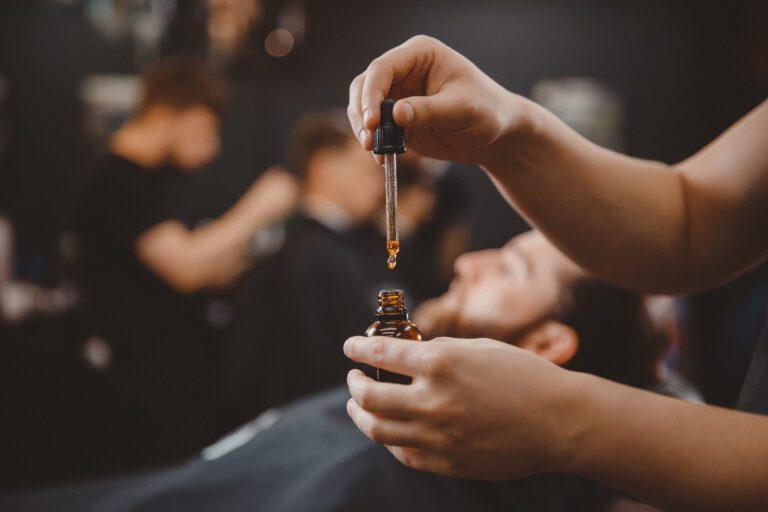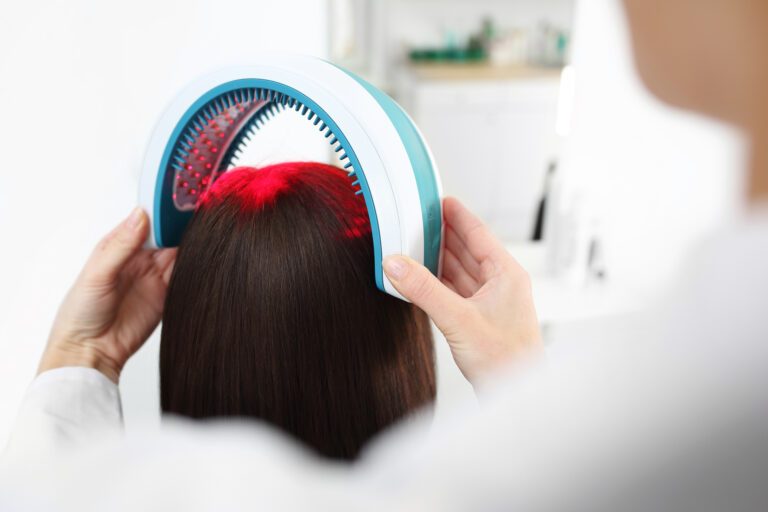Can You Apply Topical Caffeine for Hair Loss?
So far, we bet you’ve only used coffee as a wake-up drink. Who wouldn’t want a good burst of energy first thing in the morning?
Well, what if we tell you that applying caffeine to your hair might help it get some of that energy? Yes, researchers have hypothesized that you can apply topical caffeine for hair loss.
How can caffeine achieve such a feat? What are these researchers basing that hypothesis on? Let’s find out!
The Benefits of Applying Topical Caffeine to Treat Hair Loss
Let’s see what benefits caffeine can offer your hair.
1. Suppresses DHT
As you can tell by its name, dihydrotestosterone (DHT) is a sex hormone that exists in men and women. It has several physical benefits, like maintaining muscle mass and developing reproductive organs.
It doesn’t come without its risks, though; that hormone can also disrupt your hair growth cycle.
You see, high levels of DHT can shorten the hair growth cycle and shrink your follicles, causing your strands to become thinner/weaker and fall out faster.
It also slows down the hair growth process. So, your follicles will take more time to replace the fallen strands.
That’s where topical caffeine comes in. A 2012 study suggests that caffeine can suppress the hair-shrinking effects of DHT.
Researchers collected hair samples from patients with androgenetic alopecia and applied caffeine to some of them. The caffeine-treated samples exhibited signs of hair shaft elongation after five days compared to the control group.
The idea is that caffeine can activate enzymes that improve cell metabolism, which helps your hair follicles experience a more efficient cellular growth.
2. Elongates the Anagen Phase
In 2014, researchers examined the effect of caffeine on the hair growth cycle and discovered that it can stretch the anagen stage.
The anagen stage is the growth phase, where your follicles push the strands out until they fall or get cut. Stretching that phase means growing longer, healthier hair strands.
Here’s where things get interesting: The study also showed that caffeine can prompt the production of keratinocytes.
That’s an endogenous mediator that helps your hair follicles heal. It stimulates the hair growth cycle, allowing for a more durable hair structure.
Interestingly, although researchers examined the effects of caffeine on men and women, it seems that females were more responsive to the treatment.
Another 2020 study examined the effect of topical caffeine on women with androgenetic alopecia.
Researchers separated the subjects into two groups. Members of the first one applied caffeine-rich shampoo on their hair, while the other group used caffeine-free shampoo.
The study had one question to answer: How strong has the subjects’ hair become?
The method researchers used to answer that question was a bit unconventional. They pulled the hair of all the subjects to identify which shampoo produced better results.
The caffeine shampoo group lost less hair in the pull test, meaning they developed healthier, more durable strands.
3. Resists Oxidative Stress
Here’s a quick biology lesson: Your body naturally produces reactive, unstable molecules called free radicals during its metabolic processes.
These radicals can cause inflammatory diseases, cancer, and cellular damage to structural membranes.
Of course, your body won’t let you face the wrath of these molecules without doing anything. It produces antioxidants that can resist these destructive effects.
Here’s the problem: Sometimes, your body can produce free radicals and antioxidants at a disproportionate ratio, causing oxidative stress.
You can probably guess where we’re going with this. Indeed, oxidative stress prompts premature hair loss.
Sure, it can also damage your body’s cells and prompt premature aging, but we’re mainly focusing on hair loss here.
A 2003 study showed that caffeine has antioxidant properties, which means it can balance the effect of free radicals. So, you don’t have to worry about these molecules targeting your hair anymore.
These antioxidant attributes can also improve your hair shaft regeneration abilities. It even smoothes frizzy hair, making it easier to handle.
4. Provides UV Radiation Protection
Like most people, you probably apply sunscreen to the exposed parts of your body when you go to the beach. Nobody likes a sunburn.
What about your scalp, though? We bet you’ve never used any form of protection on it. That’s because your hair provides all the protection it needs.
Unfortunately, that also means your hair receives the full force of these ultraviolet rays, which can damage it, turning it dry, brittle, or rough.
In some cases, it can cause that damaged hair to fall. That’s a serious issue for people living in sunny climates, as they have to deal with these conditions on a daily basis.
Luckily, a 2019 study showed that caffeine-rich hair products can protect your follicles from the damaging effects of UV radiation.
That said, subjects didn’t just apply the hair products right before UV exposure like we do with sunscreen. They applied them for three days before and after.
Sure, it might be a bit inconvenient, but the promised results are worth it.
5. Boosts Other Hair Loss Treatments
You’re probably excited about applying caffeine to your hair and witnessing what it can do. Well, you might get even better results if you combine it with other hair loss treatments.
In a 2013 study, researchers compared the effect of topical caffeine and minoxidil 2.5% to using minoxidil solution 2.5% alone. They divided sixty patients into two groups.
Each one had to apply their solution twice a day for five months. The results? Researchers noticed that subjects who combined topical caffeine and minoxidil showed better results.
6. It’s Easy to Absorb
With hair products, you want your hair follicles to absorb as much of the solution/condition as possible. The easier the product is to absorb, the more effective it is.
Lucky for you, caffeine is easy to absorb. That’s because its molecules are quite small, so they can easily penetrate the tissues of your scalp.
A 2009 study tackles the penetrative abilities of caffeine-rich shampoo. Researchers discovered that two minutes of application allow a significant amount of caffeine to enter the tissues of the scalp.
They also discovered that the scalp can maintain traces of that caffeine after 24 hours of application.
The Negatives of Applying Topical Caffeine for Hair Loss
Despite all the value topical caffeine might offer, it’s not a perfect substance. You might face some issues when you apply it on your scalp. Let’s see what they are.
Suspicious Effectiveness
As you can see, several studies suggest that topical caffeine can help with hair loss. None of these studies are decisive, though.
So far, there hasn’t been enough comprehensive research on topical caffeine to state confidently that it can treat hair loss. No one covered whether its effects change in the long run or not.
Would a leave-on topical caffeine be more effective than shampoo? There are countless questions that haven’t been answered yet. So, take the previous studies with a grain of salt.
That’s especially true for people with a severe case of androgenetic alopecia. The more extreme your case is, the less effective topical caffeine might be.
Interacting With Other Treatments
Since there isn’t enough research on topical caffeine, we can’t say for sure if it’ll interact with other topical treatments you use.
Yes, we’ve already covered that it works well with minoxidil, but that’s not the only hair treatment on the market.
Treatment interactions can sometimes do more harm than good. Make sure to consult a healthcare professional before combining topical caffeine with other hair treatments.
Potential Side Effects
Topical caffeine is generally considered safe. However, in some cases, it can cause skin irritation, prompting itching, swelling, and redness.
It might be worse for people with sensitive skin or caffeine sensitivity. So, don’t put too much right away. Start by applying a little bit the first couple of times and see if it stimulates any allergies.
If it didn’t, gradually increase the dose. In case it did, find another hair loss treatment.
How Much Topical Caffeine Should You Apply?
At first glance, you might think: “I should probably apply topical caffeine as often as possible.” That’s an excellent idea if you hate your hair and want to see its downfall.
You know how too many macchiato cups can cause insomnia, nausea, and an increased heart rate? Over-treating your scalp with topical caffeine is the hair equivalent of that.
It can limit the production of keratinocytes and reduce hair shaft elongation. Besides, the International Wound Journal stated that high caffeine concentration can reduce cell division, which weakens your follicles’ healing abilities.
In other words, high doses of topical caffeine can stunt your hair’s growth and potentially damage it. Read the instructions on the bottle to know the optimal dose and application frequency.
Why Should You Apply Caffeine Topically?
I know what you’re thinking: “I drink coffee every day. Why do I need to apply caffeine topically?” Drinking coffee isn’t enough to transfer enough caffeine to the scalp to treat hair loss.
The amount of caffeine you need to stimulate hair growth is too large to be ingested. You’d need to drink 50 or 60 cups on a daily basis to reach that point—and even that may not be enough.
If you drink coffee regularly, you know what an excessive amount can do. Anxiety, insomnia, jitteriness, and a racing heartbeat will be your new best friends.
In case you go too overboard, you might face caffeine intoxication. You experience dehydration, gastrointestinal issues, muscle twitching, nausea, vomiting, and restlessness.
In some cases, you might have seizures or respiratory distress. Taking caffeine pills isn’t any better. So, the safest option is to apply caffeine on your scalp directly.
How Does Topical Caffeine Compare to Minoxidil?
If you’ve been looking for hair loss treatment, you must have heard of minoxidil. It’s an FDA-approved treatment and has pretty much become an industry standard.
Naturally, researchers’ first instinct was to compare the results of topical caffeine to that classic treatment.
In 2017, a study compared the effects of caffeine-based 2% topical liquid with minoxidil 5% solution on 210 men. Researchers split the subjects evenly and asked each group to apply one of the treatments.
After six months, they discovered that the caffeine-based topical liquid offered as promising results as the minoxidil solution.
How to Make a Caffeine Hair Rinse at Home
Look, pre-mixed caffeine shampoos are fine and dandy, but we can’t recommend making your own rinse enough.
It allows you to customize the mix, adding the necessary components that complement your hair and ensure optimal results. You don’t have to be a health expert to do it either.
In fact, you might even have all the ingredients in your home as you’re reading this.
Coffee Rinse
If you love the smell of coffee, making a coffee rinse will be like heaven on earth. Here’s how you do it:
- Make a regular coffee brew (the quantity depends on the length of your hair) and let it cool completely.
- Pour the brew into an applicator bottle.
- Follow your regular hair routine, washing and conditioning it with your favorite products.
- Apply the brew on your hair before it dries.
- Message the brew on your scalp for 3 minutes, then apply a shower cap.
- Let the rinse sit for 20 minutes.
- Wash it off with lukewarm water, then dry your hair.
Pro tip: Add your favorite leave-in conditioner to the brew for extra moisture.
Note: Soaking your hair in coffee can change its color—especially if it’s fair. If you don’t want that, you might want to avoid this method.
Tea Rinse
Most people forget that tea is rich in caffeine. Sure, it’s not as rich as coffee, but you can still make a decent rinse with it. Here’s how:
- Soak 3-4 bags of black tea in 3-4 bags of black tea. Let the bags sit for 5-10 minutes to get the desired concentration.
- Let the tea cool off to avoid scalp burns. That should take about an hour.
- You want to apply the rinse on a clean scalp, so wash your hair thoroughly with shampoo.
- While your hair is still damp, apply the tea generously and massage it for a few minutes.
- Once your head is fully soaked in tea, wrap a bathing cap around your head and let the rinse sit for 30-60 minutes.
- Wash the rinse off with lukewarm water and apply a deep conditioner for optimal hydration.
Pro tip: Wear comfy clothes because the rinsing process can get messy.
What Are the Best Hair Products With Caffeine?
You’re not in the mood to make the rinse yourself. We get it. In that case, caffeine-rich hair products might be an efficient alternative. Which ones should you choose, though?
There are plenty of options on the market, and you better believe not all of them offer ideal results.
1. Destined for Density Peptide Shampoo
This shampoo promotes healthy hair growth, strengthens hair strands, and stimulates nutrient circulation in the scalp.
You also don’t have to worry about potential environmental damage to your hair. This shampoo product should help protect it from UV radiation and air pollution.
2. Anti-Hair Fall + Coconut Caffeine Strengthening Shampoo
The name is a mouthful, but the product is worth it. Containing coffee extract, caffeine, and coconut oil, this shampoo reduces hair fall and restores its natural strength.
So, if you’re looking to thicken your hair while adding a bit of moisture to it, this one has got you covered. Plus, the smell will stimulate every inch of your body.
3. Intense Thickening Shampoo
Intense Thickening Shampoo is like a gentle, warm hug for your hair. Loaded with caffeine, niacinamide, and panthenol, it promotes scalp health and boosts hair roots to produce thicker strands.
Combine that with the rice protein that enhances your hair’s natural shine/volume, and this shampoo will soon become your hair’s best friend.
4. Wake Up Call Volumizing Shampoo
Better Not Younger has combined caffeine, biotin, bamboo, and hops to create a shampoo that increases hair’s volume and reduces its breakage.
It also contains argan oil and panthenol, which help nourish and moisturize your hair. Its sulfate-free formula energizes your scalp without removing essential oils.
- Grow Long Super Fast Strength Shampoo
The name itself says it all; the caffeine in this shampoo promotes healthy hair growth, while tocopheryl acetate reduces breakage. So, you get the best of both worlds.
Here’s the cherry on top: The shampoo’s formula prevents moisture loss and elongates your hair with no limits. What more could you want?
Wrapping Up
So, should you use topical caffeine for hair loss? Although there are a few studies that suggest you’ll get promising answers, we can’t recommend it 100%.
More in-depth, long-term research still needs to be done before we determine whether caffeine is an effective hair loss treatment or not.
If you think the current studies are convincing enough, though, don’t just buy any random shampoo that contains caffeine. Be selective with your hair products.
Better yet, you can mix your caffeine rinse at home using coffee or tea. That will give you the chance to customize your mixture to your liking.

